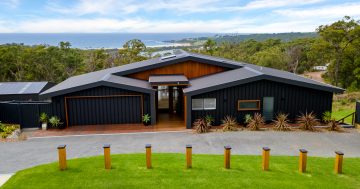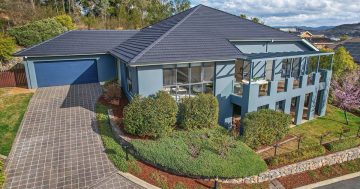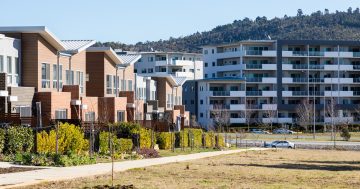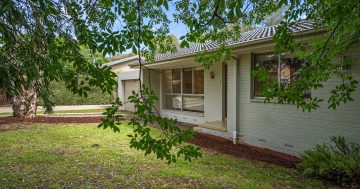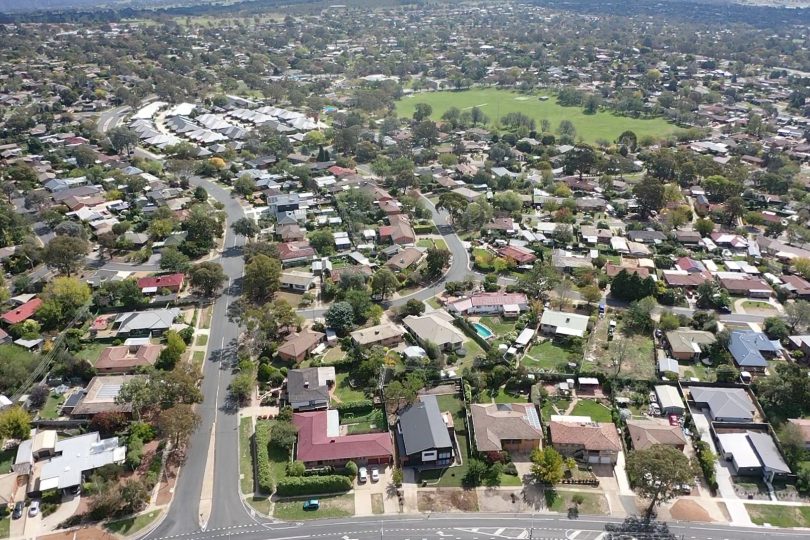
Is it time most homebuyers gave up the dream of the quarter-acre (or even more) block? Photo: Region Media.
Not that long ago, my partner and I were part of the teeming masses of young people trying to get into the housing market in Canberra.
Like many of our peers, we had grown up in this city in comfortable suburban houses on gloriously big blocks of land. We had enjoyed the luxury of both a front and backyard and the privacy of at least a few square metres of distance between our house and the fence line on either side.
Naturally, when thinking about the type of home we wanted to own, we had the vision in mind of a nice big Canberra block like the ones we grew up on. Of course, it took about 30 seconds of scrolling on property sites to realise that dream would be well out of our reach.
For a while, we still visited homes on 600-square-metre-plus blocks and wistfully wandered the backyards, toying with “if only”. But we eventually settled for the townhouse we now own, grateful to be able to own anything at all given the prices we were contending with.
Now that we’ve settled in, I can see the benefits of living in multi-title developments, not just from a lifestyle perspective but from an accessibility standpoint.
By virtue of being situated on a smaller amount of land as part of a development, our house was far more affordable than the same size residence on a big block (and we didn’t have the added costs of renovations and repairs to the ageing properties in question). In fact, with the housing unaffordability crisis reaching new depths each week, it seems like the long-held dream of a detached home on a decent block is becoming less realistic and may, in fact, be exacerbating the lack of affordable housing supply.
Land is a finite resource, but when our population was lower, it was possible to see how Canberrans could retain the bush capital culture so many enjoyed and still be accessible for the majority to gain the security of homeownership.
But now this seems less realistic. With appropriate planning, densification provides more houses on a smaller amount of land but can have higher energy efficiency and a lower environmental impact.
I’ll confess that I have long been anti-development in Canberra, especially the obsession with building apartments on every scrap of land in the inner north where I live.
Aesthetically and philosophically, I prefer lower density housing and more integration of nature with suburbs. Bigger blocks, single-storey buildings and less crowding would be ideal, but it isn’t realistic in the face of the inequity we see in the property market.
Having experienced the difficulty of buying a home, I can see how people in my generation and other new home-buyers are being pushed further and further out of the inner suburbs because the house-to-land ratio is too low. The further out, while most workplaces are still located around Civic and Barton, means the more you have to spend on transport, the more time you spend travelling between home and work, and the harder it is to access many of the amenities that are localised to major town centres.
We snuck into one of the last townhouse developments in our area. I’m grateful that we didn’t have to compromise on lifestyle/access to the amenities we enjoy to live in a reasonably sized home. We might not have a backyard or front yard, but we have a mountain behind us and a nature reserve across the road, and I’d rather see land used for communal parkways than fenced in around big blocks that are only enjoyed by the few that can afford to own them.
Apartments and townhouses may not fit with the vision of Canberra many of us hold dear, but is it time we faced facts and let the dream of the big block go in favour of a fairer use of land across the city?













